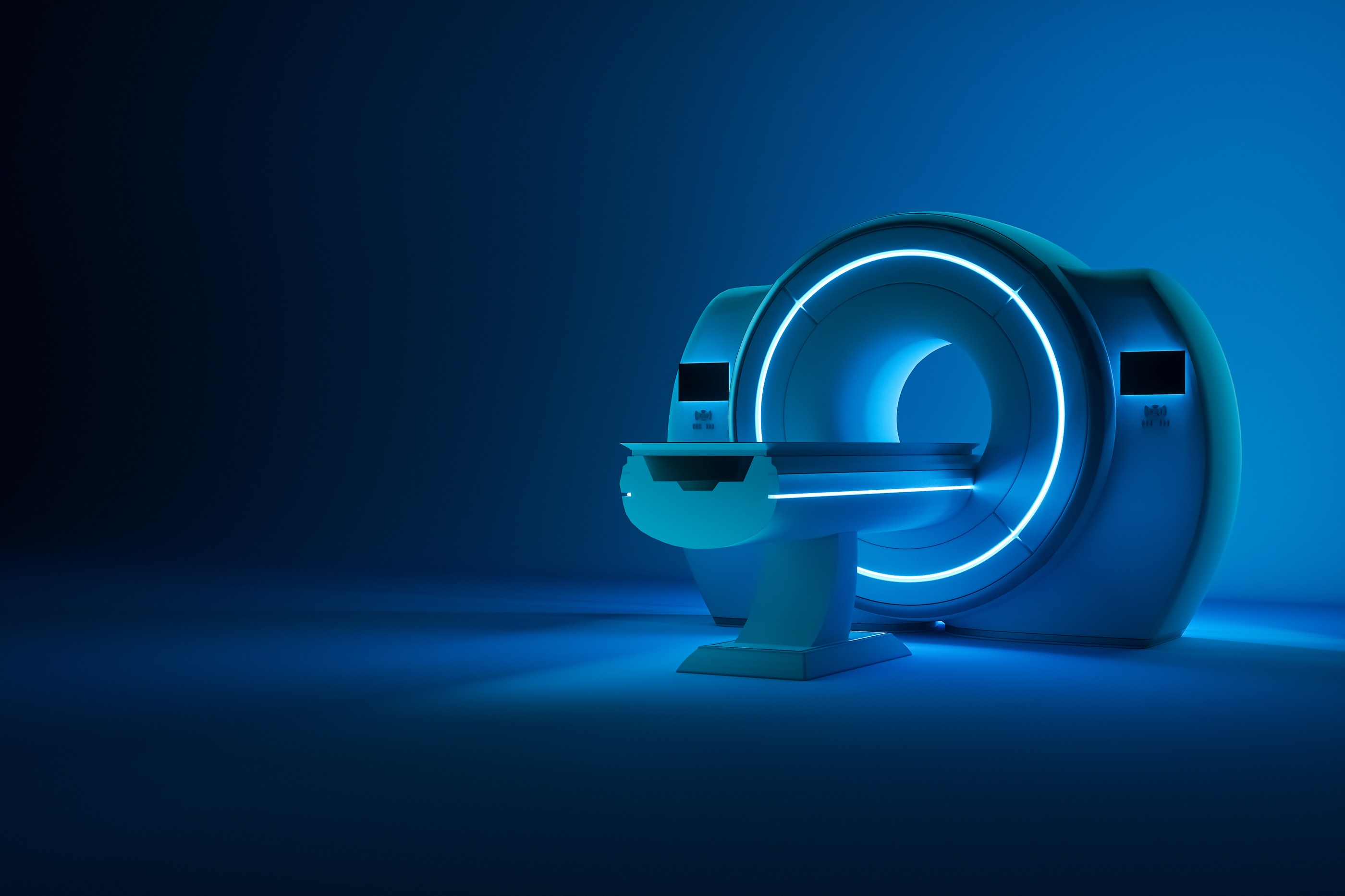
- Health Hub
- /
- scans

Although CT scans and MRI scans utilize different technologies, they share a common goal: provide comprehensive and detailed images of the inside of your body for the purpose of identifying, diagnosing, and treating a variety of health conditions and abnormalities. MRI scans and CT scans are life-saving medical imaging technologies that provide doctors with vital information regarding your health. Although these two scans vary in technique, people understandably get these two scans confused.
Despite sharing a common goal, MRI scans and CT scans are indeed very different medical imaging technologies, and understanding the difference between these types of scans will both make you an educated patient and help you determine which scans may be best for your situation. However, keep in mind that only a physician can tell you which medical imaging tool is best for your particular needs. This article exists to help you sift out the differences between these two scans, understand their specific uses and their ideal candidates, and improve your knowledge of medical imaging for real-world purposes.
Magnetic resonance imaging (MRI) scans use large magnets with a strong magnetic pull along with radio waves to create detailed images of the inside of your body.1 These unique and safe scans are extremely effective for capturing images of a variety of internal structures, ranging from tissues and other soft matter, to ligaments, joints, and sometimes tumors. MRIs do not emit any type of ionized radiation, making them extremely safe tests to receive. There are various types of MRI scans, such as closed MRI scans, open MRI scans, MRSPs, and more. To learn more about MRI scans, visit scan.com’s MRI scan page.
Computed tomography scans–sometimes also referred to as CAT scans–are a type of X-ray scan that rotates around your body and produces cross-sectional images of body parts via narrow beams of X-rays. CT scan machines then “stack” these detailed images together to form 3D pictures of various parts of your body, which helps radiologists and doctors with identification and determination of potential problems in your body.2
CT scans sometimes use contrast dyes (also called contrast agents) to enhance the readability of CT scan images. Soft tissues, for example, may not always be easy for radiologists to see on CT scan images. Using a contrast agent can help add visibility to important structures in your body and help these more discreet body parts show up on CT scan pictures. CT scans can diagnose life-threatening conditions and abnormalities, such as:3
Since CT scans are a type of X-ray machine, and X-rays emit some ionized radiation, CT scans also emit a small amount of radiation. However, the risks of these scans almost always far outweigh their benefits. To learn more about CT scans, visit scan.com’s CT scan guide.
CAT scans and CT scans are the same thing. Each of these terms refer to computed tomography scans and may utilize contrast agents to capture detailed pictures of your body’s internal structures and systems.
MRI scans and CT scans are both safe medical imaging tools. Some of the biggest similarities of these are their uses and the fact that they each (generally) involve you lying down on a table that moves into a large scanning machine. Although doctors prescribe both MRI scans and CT scans to help them diagnose and identify a variety of health conditions and abnormalities, these scans are distinctly different types of medical imaging tools with some distinct uses, costs, and levels of relative efficacy. For example, CT scanners tend to be a bit quieter than MRI scanners and may be better for people who suffer from claustrophobia.
MRIs tend to cost at least twice as much as CT scans for various reasons, including imaging clarity. This may sway some peoples’ decision as to whether to get a CT scan or MRI scan.
MRIs and CT scans are each effective in helping radiologists and doctors diagnose a variety of issues, but either of these scan types’ efficacy depends on what they’re being used for. Which conditions and abnormalities being identified is another place where these two scans might differ. While CT scans use X-rays, MRI scans use ultrasound technology.
MRIs can usually produce clearer and more detailed images than CT scans, giving them a slight advantage in diagnosing certain disorders or abnormalities. Only a radiologist or physician can determine whether a CT scan or an MI scan is right for you.
MRIs and CT scans are both relatively safe procedures. However, CT scans do emit a small amount of ionizing radiation because they use X-ray technology. Ionizing radiation can sometimes cause damage to DNA and tissues, but this damage is usually minuscule in comparison to the CT scan’s ability to catch life-threatening illnesses in early stages. In other words, many people tend to find that the small risk of exposure to radiation from CT scans and other X-ray machines is worth it in exchange for the abnormality-identifying capabilities of this advanced machine.
In pregnant women, doctors may prefer to opt for an MRI in lieu of a CT scan because of the risk of tiny amounts of radiation. Be sure to let your doctor know if you are pregnant before receiving any medical imaging scans.
Overall, your doctor will decide what scan type is right for you based on a variety of factors, such as:
If you are looking for an MRI scanner or CT scan center in your area, scan.com can help you. Use scan.com’s scan center search tool to help you find top-tier medical imaging centers in your area, including ultrasound clinics, X-ray centers, nuclear scan centers, MRI centers, CT centers, and many other types of scan centers. Use scan.com’s search tool today to find the best local diagnostic and medical imaging centers in your area.
Resources: